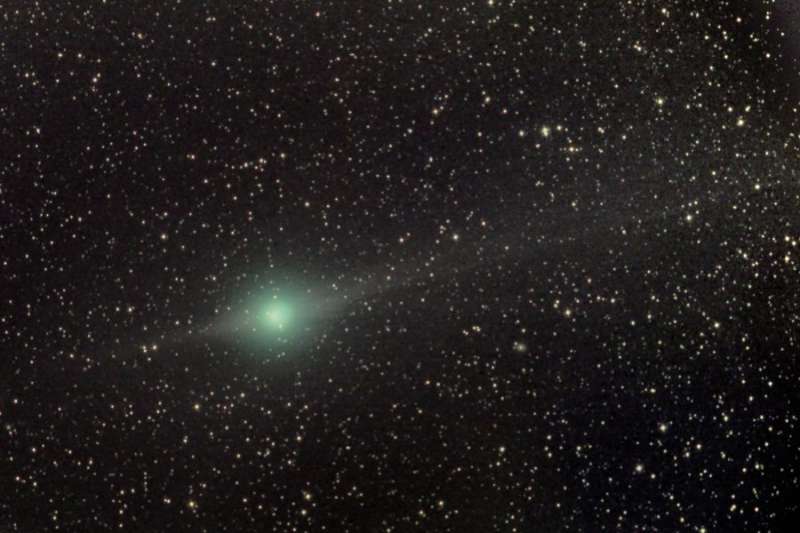 |
Астронет: Астрономическая картинка дня Комета Лулин приближается http://www.astronet.ru/db/msg/1233114/eng |
Credit & Copyright: Paolo Candy
(Cimini Astronomical Observatory)
Explanation:
How bright will Comet Lulin become?
No one knows for sure.
Although it is notoriously
difficult to
accurately
predict the brightness of newly discovered comets,
Comet Lulin could well become
visible to the unaided eye later this month.
As Comet Lulin moves into the northern sky in
mid February to rise around midnight, it should at least be spotted
by comet watchers with binoculars and a
good sky chart.
Tracking observations indicate that the
comet
officially designated
C/2007 N3 (Lulin) has now swung by the
Sun and is approaching
Earth
on a trajectory that will bring it within half the
Earth-Sun
distance in late February.
Comet Lulin's orbit indicates that this is likely
the comet's first trip into the inner Solar System.
The comet was discovered by Quanzhi Ye of
Sun
Yat-sen University on images obtained by Chi-Sheng Lin at the
Lu-Lin
Observatory of
National
Central University.
In this picture, taken from Italy last Friday, are
Comet
Lulin's coma and tails, one tail pointing away from the
Sun, and an
anti-tail -- dust that
trails the comet in its orbit
and may appear to point toward the Sun.
Authors & editors:
Robert Nemiroff
(MTU) &
Jerry Bonnell
(USRA)
NASA Web Site Statements, Warnings,
and Disclaimers
NASA Official: Jay Norris.
Specific
rights apply.
A service of:
LHEA at
NASA /
GSFC
& Michigan Tech. U.
